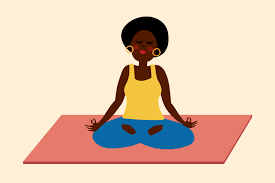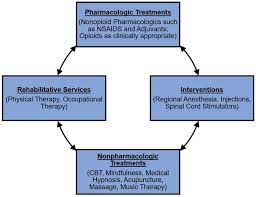Meditation: A Practice for a More Balanced Life
Meditation has been practiced for thousands of years and has become increasingly popular in recent times as people seek ways to manage stress, anxiety, and improve their overall well-being. Meditation is a practice that involves training the mind to focus on the present moment, creating a sense of calmness and relaxation.
There are many different types of meditation, each with their own unique approach. Some types focus on breathing techniques, while others use visualization or chanting to help achieve a meditative state. Regardless of the type of meditation practiced, the benefits are numerous.
One of the primary benefits of meditation is its ability to reduce stress and anxiety. In today’s fast-paced world, stress has become a common part of daily life. Meditation provides an opportunity to slow down and quiet the mind, allowing us to release tension and find inner peace.
Meditation has also been shown to improve sleep quality. Many people struggle with sleep due to racing thoughts or an inability to relax. By practicing meditation before bed or even during the day, we can train our minds to let go of worries and allow our bodies to enter a more restful state.
In addition to improving mental health, meditation can also have physical benefits. Studies have shown that regular meditation can lower blood pressure, reduce inflammation in the body, and boost the immune system.
Another benefit of meditation is its ability to increase self-awareness. Through meditation, we learn how our minds work and become more attuned to our thoughts and emotions. This increased awareness can lead to greater emotional intelligence and improved relationships with others.
Despite its many benefits, starting a meditation practice can be challenging for some people. It’s important not to get discouraged if you find it difficult at first; like any new skill, it takes time and practice.
To get started with meditation, find a quiet place where you won’t be disturbed for at least 10-15 minutes. Sit comfortably with your back straight and close your eyes. Begin to focus on your breath, noticing the sensation of air moving in and out of your body. If your mind begins to wander, gently bring it back to your breath.
There are also many resources available to help you get started with meditation, including guided meditations, apps, and classes. Experiment with different types of meditation to find what works best for you.
In conclusion, meditation is a powerful practice that can have a positive impact on both our mental and physical health. By taking just a few minutes each day to quiet the mind and focus on the present moment, we can experience greater peace and balance in our lives.
Answers to Common Questions about Meditation and How to Get Started
- What exactly does meditation do?
- How do you meditate?
- What are 5 ways to meditate?
- What does the Bible say about meditation?
What exactly does meditation do?
Meditation is a practice that involves training the mind to focus on the present moment, which can have numerous benefits for both mental and physical health.
One of the primary benefits of meditation is its ability to reduce stress and anxiety. When we meditate, we enter a state of calmness and relaxation, which can help us release tension and find inner peace. This can lead to a reduction in symptoms of anxiety and depression.
Meditation has also been shown to improve sleep quality. By practicing meditation before bed or even during the day, we can train our minds to let go of worries and allow our bodies to enter a more restful state. This can lead to better sleep quality and improved overall health.
In addition to improving mental health, meditation can also have physical benefits. Studies have shown that regular meditation can lower blood pressure, reduce inflammation in the body, boost the immune system, and even improve digestion.
Another benefit of meditation is its ability to increase self-awareness. Through meditation, we learn how our minds work and become more attuned to our thoughts and emotions. This increased awareness can lead to greater emotional intelligence and improved relationships with others.
Overall, meditation is a powerful tool that can help us achieve greater peace, balance, and well-being in our lives. By taking just a few minutes each day to quiet the mind and focus on the present moment, we can experience numerous benefits for our mental and physical health.
How do you meditate?
Meditation is a practice that involves focusing the mind on a particular object, thought, or activity to achieve a mental state of relaxation and awareness. To meditate, find a comfortable position in a quiet place and focus your attention on your breath. Take slow, deep breaths and pay attention to how your body moves with each inhalation and exhalation. When you notice your mind wandering, gently bring it back to focus on your breath. You can also try guided meditations, visualization techniques, or mindfulness exercises like counting mantras or repeating affirmations.
What are 5 ways to meditate?
There are many ways to meditate, and what works best for one person may not work for another. Here are five different techniques that you can try:
- Mindfulness Meditation: This type of meditation involves paying attention to your thoughts, feelings, and sensations in the present moment without judgment. You can do this by focusing on your breath or a specific object while noticing any thoughts or distractions that arise.
- Loving-Kindness Meditation: This type of meditation involves cultivating feelings of love, kindness, and compassion towards yourself and others. You can do this by repeating phrases such as “may I be happy” or “may you be free from suffering” while visualizing yourself or someone else.
- Body Scan Meditation: This type of meditation involves focusing on different parts of your body and noticing any sensations without judgment. You can start at the top of your head and work your way down to your toes, bringing awareness to each part as you go.
- Chanting Meditation: This type of meditation involves repeating a word or phrase out loud or silently to yourself. The repetition helps to quiet the mind and create a sense of calm.
- Walking Meditation: This type of meditation involves walking slowly and mindfully while paying attention to your breath, body sensations, and surroundings. You can do this indoors or outdoors, in nature or in a quiet space.
Remember that there is no right or wrong way to meditate; it’s about finding what works best for you and making it a regular practice. Experiment with different techniques until you find one that resonates with you, and don’t be afraid to switch things up if you get bored or feel like you need a change.
What does the Bible say about meditation?
The Bible has many references to meditation, particularly in the Old Testament. In fact, the Hebrew word for meditation, “hāgâ”, is used over 20 times in the Old Testament.
One of the most well-known passages on meditation is found in Joshua 1:8, which says “This Book of the Law shall not depart from your mouth, but you shall meditate on it day and night, so that you may be careful to do according to all that is written in it. For then you will make your way prosperous, and then you will have good success.”
In this passage, God instructs Joshua to meditate on His Word day and night so that he can follow it carefully and prosper in all he does. This shows that meditation can be a powerful tool for spiritual growth and obedience to God’s commands.
Another example of meditation in the Bible can be found in Psalm 1:2-3: “But his delight is in the law of the Lord, and on his law he meditates day and night. He is like a tree planted by streams of water that yields its fruit in its season, and its leaf does not wither. In all that he does, he prospers.”
This passage also emphasizes the importance of meditating on God’s Word as a way to find joy and fulfillment in life.
The Bible also speaks about different types of meditation. In Philippians 4:8-9, Paul encourages believers to meditate on things that are true, honorable, just, pure, lovely, commendable, excellent or praiseworthy.
In addition to these examples from Scripture, many Christians practice contemplative prayer as a form of meditation. This involves focusing on a word or phrase from Scripture or repeating a short prayer as a way to quiet the mind and draw closer to God.
Overall, while there are different forms of meditation practiced today with varying spiritual roots, the Bible emphasizes the importance of meditating on God’s Word as a way to grow in faith and obedience.




